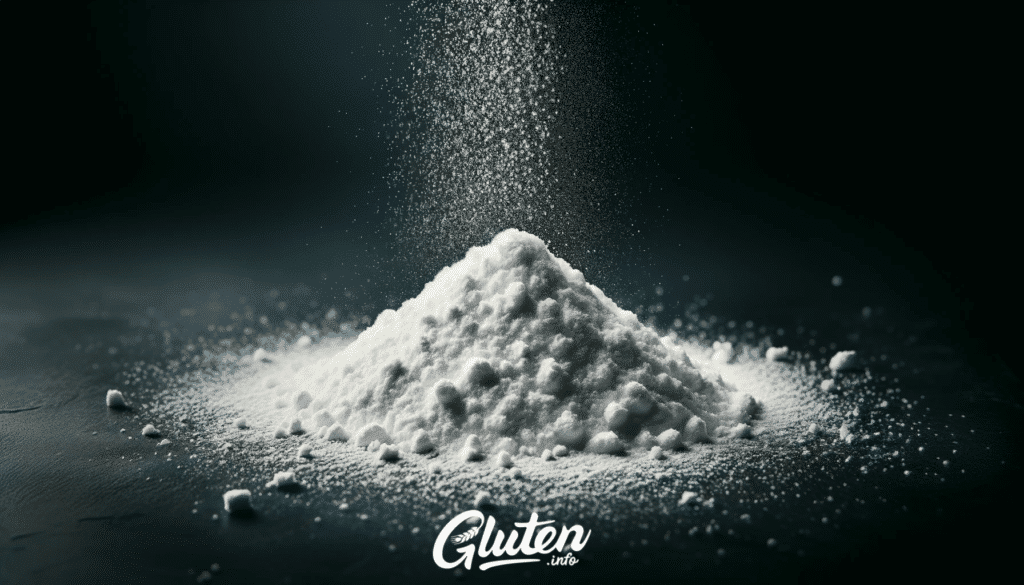Ever since my diagnosis with Celiac Disease, the journey through the culinary world has been a cautious one, especially with ingredients like Powdered Sugar. Recently, I discovered that while most brands of Powdered Sugar are naturally Gluten-Free, some may contain gluten due to cross-contamination or added starches. This was a revelation, as I had always assumed that all Powdered Sugar was safe for my condition. After extensive research and careful label reading, I found a trusted brand that guarantees a Gluten-Free status.
Contents
What is Powdered Sugar?
Powdered Sugar, also known as confectioner’s sugar or icing sugar, is a finely ground sugar produced by milling granulated sugar into a powdered state. It often contains an anti-caking agent, such as cornstarch, to prevent clumping and improve its flow.
Gluten-Free Status
The primary concern for individuals with Gluten sensitivity or Celiac Disease is whether Powdered Sugar contains gluten, a protein found in wheat, barley, and rye. While sugar itself is naturally Gluten-Free, the addition of cornstarch (commonly used as an anti-caking agent in Powdered Sugar) is where the Gluten-Free status can vary. Most cornstarch is Gluten-Free, but cross-contamination can occur during processing. Therefore, it’s essential to check for a Gluten-Free label on the packaging.
Top Brands of Gluten-Free Powdered Sugar
- Aldi
- Kroger
- Domino
- Good & Gather
- Rogers
- 365 by Whole Foods Market
- O Organics
- Wholesome Sweeteners, Inc.
- Simple Truth Organic
Nutritional Facts
The nutritional facts for powdered sugar are important to consider, especially for those who are mindful of their dietary intake. Powdered sugar, being a refined sugar product, primarily consists of carbohydrates. Here are some key nutritional aspects:
- Calories: Powdered sugar is high in calories due to its sugar content. A typical serving (1 cup) contains about 389 calories.
- Carbohydrates: It is almost entirely made up of carbohydrates, with 1 cup providing around 100 grams of carbs.
- Sugars: As it’s sugar, the carbohydrate content is primarily sugars.
- Fiber: There is no dietary fiber in powdered sugar.
- Fat and Protein: Powdered sugar contains negligible amounts of fat and protein.
- Vitamins and Minerals: It provides no significant vitamins or minerals, as it is a refined product.
- Glycemic Index: Powdered sugar has a high glycemic index, which means it can cause a rapid increase in blood sugar levels after consumption.
It’s important to remember that these values can vary slightly based on the brand and whether any additional ingredients (like cornstarch) are added.
Pros and Cons
Pros
- Texture and Flavor: Powdered sugar adds a smooth texture and sweet flavor to various dishes, especially baked goods and frostings.
- Versatility: It’s used in a wide range of recipes, from icing and glazes to sweetening whipped creams and dessert garnishes.
- Appearance: Provides a decorative finish to desserts, enhancing their visual appeal with a dusting of fine, white sugar.
- Binding Agent: Acts as a binding agent in some recipes, helping to combine ingredients smoothly.
Cons
- High in Calories: Powdered sugar is calorie-dense, which can be a concern for those monitoring calorie intake.
- Nutritional Value: Lacks essential nutrients, offering little beyond simple carbohydrates.
- Blood Sugar Impact: Its high glycemic index means it can lead to rapid spikes in blood sugar levels, which is a concern for diabetics and those watching their blood sugar.
- Dental Health: Like all sugars, it can contribute to dental health issues like cavities if consumed in excess.
- Allergy and Sensitivity: For those with gluten sensitivity, ensuring the powdered sugar is truly Gluten-Free can be a challenge due to potential cross-contamination or additives.
FAQ
Is Powdered Sugar Gluten-Free?
Most powdered sugar is gluten-free, but it can contain gluten due to anti-caking agents like wheat starch or cross-contamination in facilities processing wheat. Check the label or choose brands specifically labeled as Gluten-Free.
What is the Difference Between Powdered Sugar and Granulated Sugar?
Powdered sugar is granulated sugar that has been ground into a fine powder and often mixed with an anti-caking agent like cornstarch. It’s finer and dissolves more easily than granulated sugar.
Can I Make My Own Powdered Sugar?
Yes, you can make your own powdered sugar by grinding granulated sugar in a blender or food processor until it’s a fine powder. Add a bit of cornstarch (or another anti-caking agent) to prevent clumping.
How Should I Store Powdered Sugar?
Store it in an airtight container in a cool, dry place to prevent it from hardening or absorbing moisture. Avoid exposure to strong odors as sugar can absorb them.
Can Diabetics Consume Powdered Sugar?
Diabetics should consume powdered sugar cautiously, as it can quickly raise blood sugar levels. Alternatives like stevia or erythritol-based powdered sweeteners may be better options.
Is Powdered Sugar Suitable for Vegan Diets?
Pure powdered sugar is vegan, but it’s important to check the brand for any non-vegan additives. Organic and natural brands often offer vegan-friendly options.


